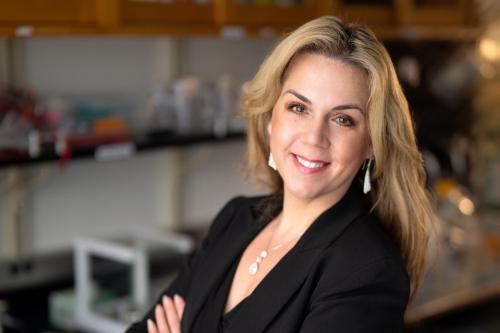
Dr. Tanya Stoyanova receives grant to develop new radiopharmaceuticals for cancer
Dr. Tanya Stoyanova, associate professor of Molecular and Medical Pharmacology and Urology at the David Geffen School of Medicine at UCLA, was awarded a $320,000 grant from Worldwide Cancer Research to develop an innovative molecular tool designed to detect and target prostate, breast, and potentially other carcinomas.
Carcinomas, which are cancers originating from epithelial cells, account for 80% to 90% of all cancer cases. Prostate cancer and breast cancer are the most commonly diagnosed non-skin cancers and the second leading cause of cancer-related death in men and women, respectively.
The new radiopharmaceuticals will be based on a small fragment of protein called a minibody that will recognize and bind Trop2 protein on the surface of cancer cells. High levels of Trop2 are often associated with more aggressive tumors because the protein can promote cancer cell growth and spread, making it an ideal target for both detecting and treating cancer.
The team will engineer the minibodies and radiolabel them to specifically attach to prostate and breast cancer cells. One type of the engineered radiolabeled minibodies will be further tested as an imaging tool to improve cancer detection, while another type will be developed to deliver targeted radiotherapy directly to the cancer cells, aiming to eradicate them more precisely.
“Our goal is to create a versatile tool that not only improves the accuracy of cancer detection but also delivers highly targeted treatments,” said Stoyanova, who is also a member of the UCLA Health Jonsson Comprehensive Cancer Center and the Eli and Edythe Broad Center of Regenerative Medicine and Stem Cell Research at UCLA. “By focusing on Trop2, we aim to develop innovative imaging agents and therapies that could significantly improve outcomes for patients battling advanced prostate, breast, and other carcinomas."

